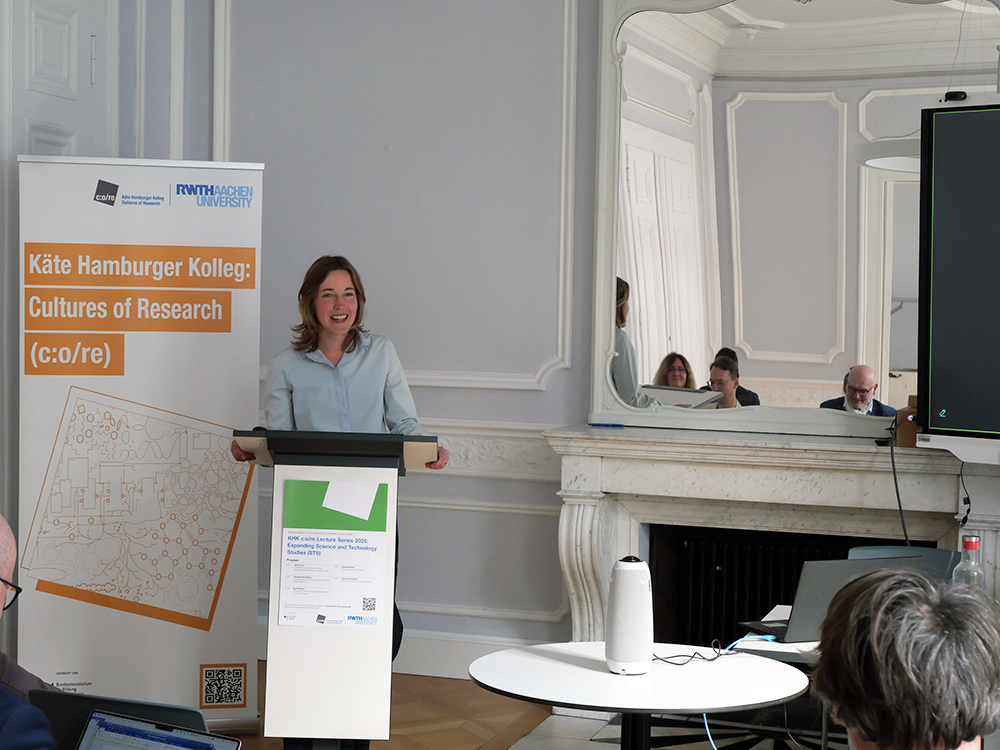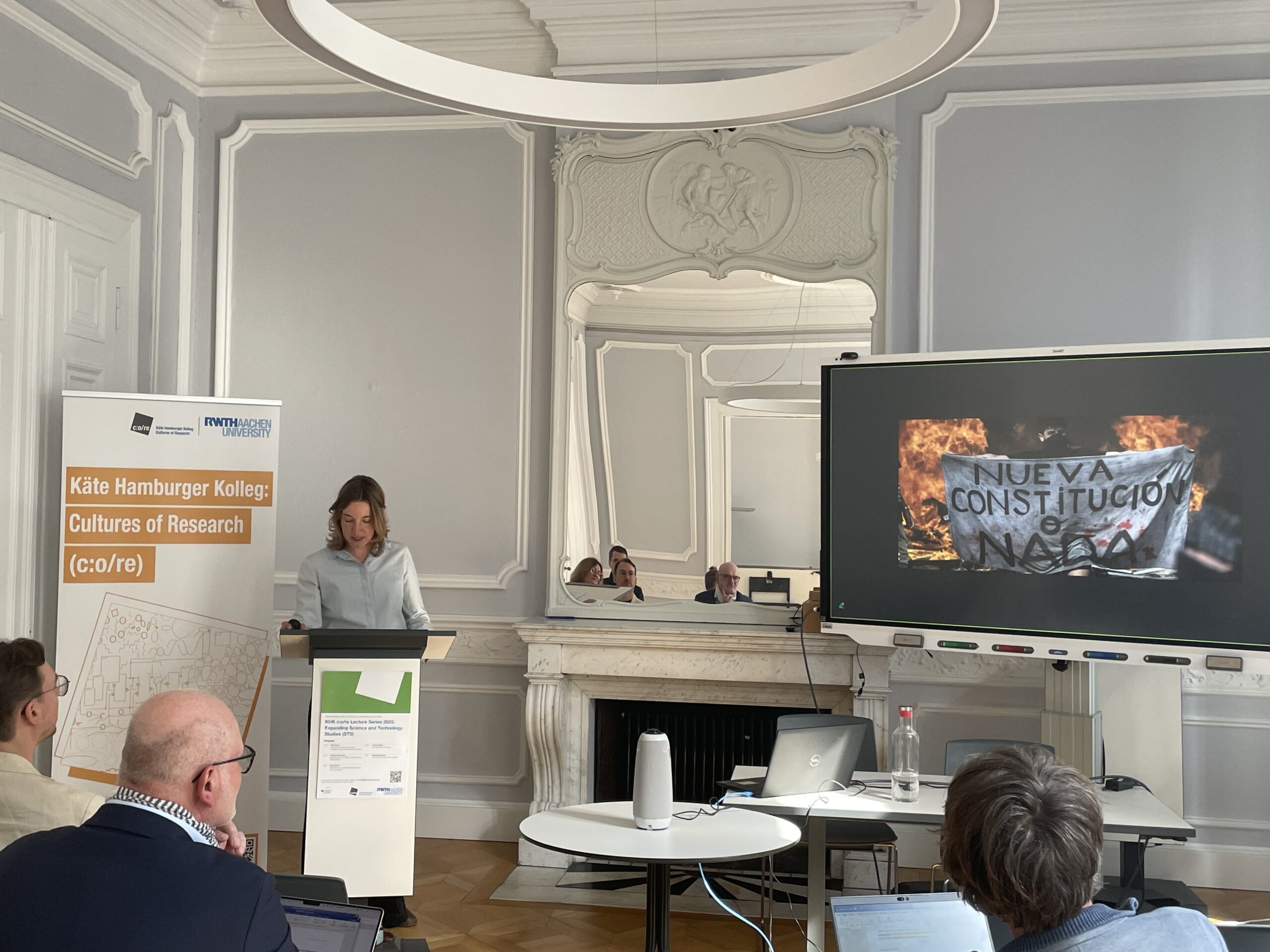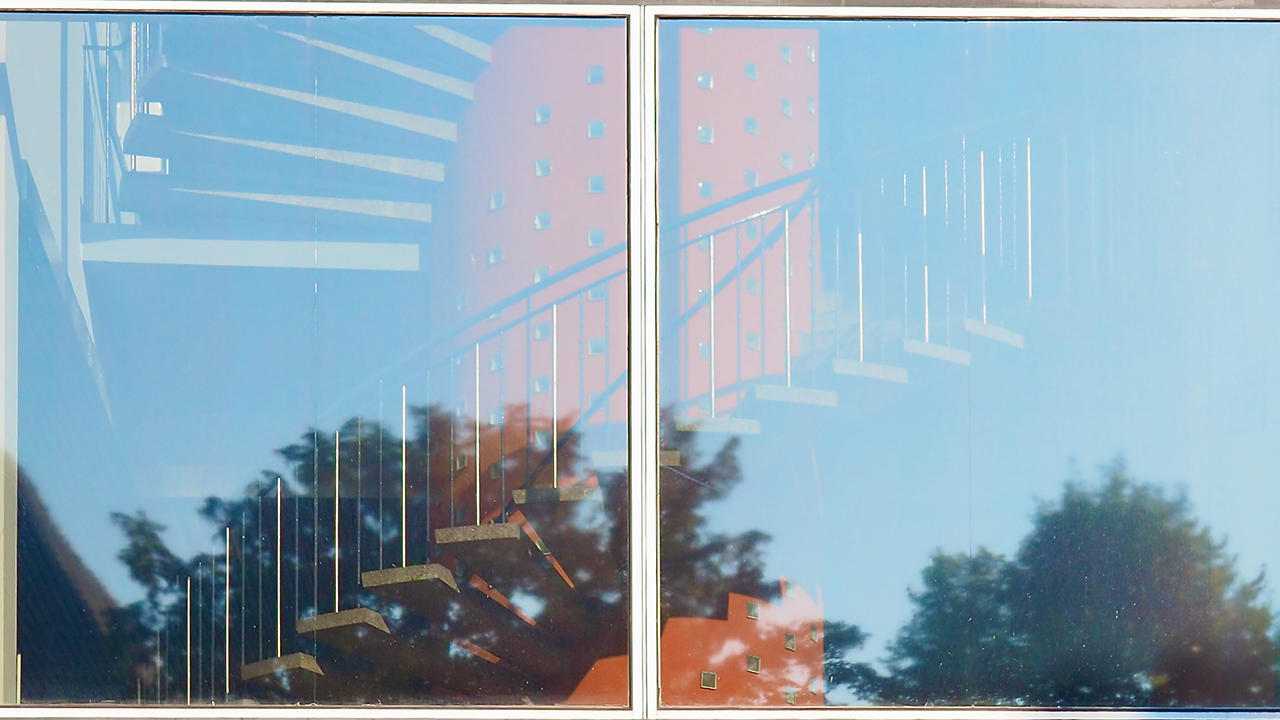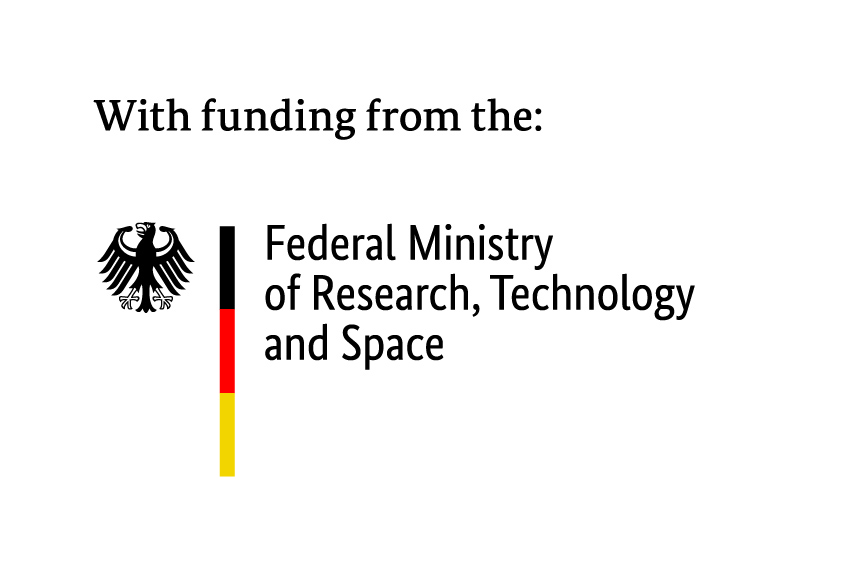NINA FRAHM
My short-term fellowship kicked off with a KHK c:o/re workshop exploring the 2025 thematic field ‘expanded science and technology studies (STS)’. As Stefan Böschen explained at the beginning of the session, key questions guiding work in this field were how to study and make sense of increasingly hybrid forms of knowledge production in contemporary research and technological development. Expanding well beyond traditional cultures of science and engineering, research today reflects an imperative to integrate heterogeneous actors, diverse epistemic backgrounds and material practices, and a plurality of economic and political interests. On the one hand, this hybridization of research is driven by expectations for research to become more innovative – to produce new knowledge and technological tools at ever-greater speed and scale. On the other hand, it is a response to a crisis of scientific authority and narratives of technoscientific progress – producing corollary demands to democratize research through greater inclusion of society, stakeholders, and the wider public. During the workshop, we discussed different avenues through which STS can study, meaningfully engage in, and, perhaps, even contribute to critique of this trend and its dynamics. Might expanded forms of scientific and technological production also require expansion of analytical perspectives, methodological tools, types of collaboration, and vocabularies of critique in STS?

Nina Frahm
Nina Frahm is a postdoc at the Department for Digital Design and Information Studies, Aarhus University. Grounded in Science and Technology Studies (STS), she critically examines policies and governance approaches for innovation across countries, institutions, and technoscientific domains.
During my lecture at KHK c:o/re a few hours later, I argued that STS research into changing cultures of technoscience indeed should expand to studying equally important transformations in the governance of science and technology – in fact, changes in one rarely occur without changes in the other. My research over the last couple of years has closely followed recent shifts in the ways public policies frame the governance of technoscience, and in particular, which frameworks and instruments have been put into practice to achieve a greater inclusion of society in innovation processes. In the past, science and technology policy emphasized a ‘social contract with science’ and a hands-off, hidden role of the state in the production and governance of technological innovation1. Today, however, we witness governments and public institutions openly embracing innovation imperatives and policies to support the development of innovative technologies beyond science alone. Yet, promises on part of policy to achieve social progress and wellbeing through investments in innovation also face the challenge to legitimize public investments in high-risk, highly uncertain research and development. A key task for the ‘entrepreneurial state’2 is hence to produce visions of innovation as a res publica – a thing that can be produced and governed by society and according to its rules.

A new spirit of technoscience
The public turn to innovation in the 21st century is characterized by a ‘new spirit of technoscience’3 in which 20th century governance paradigms are turned upside down. Rather than following linear models of innovation, ‘techno-fix’ logics, and ideals for the self-governance of research and development, policies advance frames of technoscientific governance in which the public is given a key role to control innovation pathways and to fix potential problems for society upstream4. The new spirit advances a variety of frameworks to integrate the public in the development and governance of innovation, such as Bioethics, ‘Responsible Research and Innovation’, Open Science, or ‘Mission oriented Innovation’. Different tools are mobilized by policy to put such frameworks into practice, ranging from ethics committees and expert advisory boards to public engagement exercises, citizen deliberations, or co-creation processes, to name but a few.
While all these tools are geared toward ‘opening up’ technoscientific development and governance, each of them follows a particular idea of who the public is and why it should be included, how it can participate and be represented in technoscientific development and governance, through which means, and for what ends. As my research on the governance of emerging neurotechnologies5 and AI6 has shown, differences in governance frameworks and tools can be traced to culturally situated ideals of democracy that vary greatly across contexts. For instance, US approaches to innovation governance are marked by liberal-technocratic ideals of democracy as deliberations around new technologies are often delegated to experts from science, the law, or philosophy. Here, responsibility for good governance of innovation pathways is located within the individual researcher, engineer, and end-user. The EU, in turn, has experimented with more direct and deliberative forms of democracy in which the public participates directly in settling norms and principles and in which governance responsibility is collectivized along the entire innovation process, including public institutions, scientists, actors in R&D, entrepreneurs, as well as citizens. Whereas both approaches follow long-held scripts, or fictions7, of democratic procedures and practices, they also considerably re-order the relationship between publics and technoscience, particularly when it comes to the distribution of authority to reason on emerging technologies and to take decisions for their governance.

Repertoires for expansion
Expansions in the role of the state and public institutions in the production of innovation are, hence, closely related to expanding the governance of technoscience to new types of publics, forms of expertise, and practices rooted in situated imaginaries of democratic sovereignty and self-rule. To study this dynamic relationship between changing forms of technoscientific production and governance, STS offers the rich analytical language of ‘interactional co-production’ which has been tried and tested in numerous case-studies that illustrate the complexity and diversity of accommodations between science, technology, and society8. This analytical approach allows us to symmetrically trace how changes in the ways knowledge is produced and technology developed – in changing epistemic and material order – simultaneously reflect changes in democratic order regarding the power to reason on and govern science and technology in the name of society.
Such analysis encourages us to direct our critical eye beyond the discourses and practices of scientists and engineers to those places and settings which tend to be overlooked in public debates and appraisal of innovation, such as ethics advisory bodies or citizen panels. Next to interrogating their role in the co-production of socio-technical imaginaries, STS can expand analysis to conceptualizing their importance in re-producing imaginaries of democracy and in re-configuring them for the innovation era. As Jan-Peter Voß has argued, “a lot of more work is required to create robust links between empirical studies of how public engagement is conceptualized and done in various ways and the basic presuppositions and tenets of political theories describing specific ways of how ‘society’ or ‘the people’ as a whole become articulated and how the public speaks.”9 In a time where diagnoses of a ‘crisis of democracy’ are permeating the headlines and a shared sense of democratic values seems to be waning, such work is ever more important. But it can also feel uncomfortable as it contributes to further pluralizing, rather than stabilizing, taken for granted understandings of democracy and democratic practice. Doing this work requires institutional spaces that are open for expansion – spaces like KHK c:o/re where interdisciplinarity, curiosity, and intellectual courage are cultivated and cherished. In the workshop, during my lecture, and in different encounters with fellows, I have experienced how ‘expanded STS’ is not just a scholarly ambition but a mode of doing research and of thinking together that is already very much alive. And although every expansion has a limit, I look forward to further stretching it with colleagues at KHK c:o/re and beyond.

References
1 Pfotenhauer, S. M., and Juhl, J. (2017). Innovation and the Political State: Beyond the Myth of Technologies and Markets. In Critical Studies of Innovation: Alternative Approaches to the Pro-Innovation Bias, edited by Benoît Godin and Dominique Vinck, 68–94. Cheltenham, England: Edward Elgar. 68–94. https://doi.org/10.4337/9781785367229.00012 .; Block, F. (2008). Swimming Against the Current: The Rise of a Hidden Developmental State in the United States. Politics & Society, 36(2), 169-206. https://doi.org/10.1177/003232920831873
.
2 Mazzucato, M. (2018). The entrepreneurial state. Penguin Books.
3 Doezema, T. and Frahm, N. (2023). The New Spirit of Technoscience: Reformulating STS Critique and Engagement. Journal of Responsible Innovation, Vol. 10(1). doi: 10.1080/23299460.2023.2281112
4 Frahm, N., Doezema, T., & Pfotenhauer, S. (2021). Fixing Technology with Society: The Coproduction of Democratic Deficits and Responsible Innovation at the OECD and the European Commission. Science, Technology, & Human Values, 47(1), 174-216. https://doi.org/10.1177/0162243921999100.
5 Frahm, N. (2022) Soft Constitutions: Co-producing Neuro-Innovation and Society in the US, EU, and OECD. PhD Dissertation, Technical University Munich.
6 Frahm, N. and Schiœlin, K. (2023) Toward an ‘Ever Closer Union’: The Making of AI-Ethics in the EU. STS Encounters, Vol. 15(2).
7 Ezrahi, Y. (2012) Imagined Democracies: Necessary Political Fictions. Cambridge: Cambridge University Press.
8 Jasanoff, S. (2005) Designs on Nature: Science and Democracy in Europe and the United States. Princeton & Oxford: Princeton Unviersity Press; Laurent, B. (2022) European objects: the troubled dreams of harmonization. Cambridge, MA: The MIT Press; Parthasarathy, S. (2017). Patent Politics: Life Forms, Markets, and the Public Interest in the United States and Europe. Chicago: University of Chicago Press. https://doi.org/10.7208/9780226437996.
9 Voß, Jan-Peter (2019) Re-making the modern constitution: The case for an observatory on public engagement practices. In: Simon, D., Kuhlmann, S., Stamm, I., Canzler, W. (eds.) (2019): Handbook of Science and Public Policy. Cheltenham: Edward Elgar.



